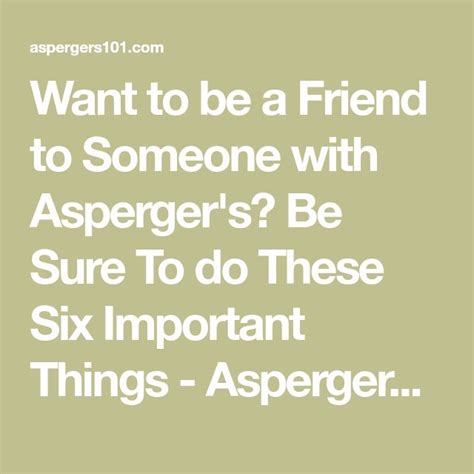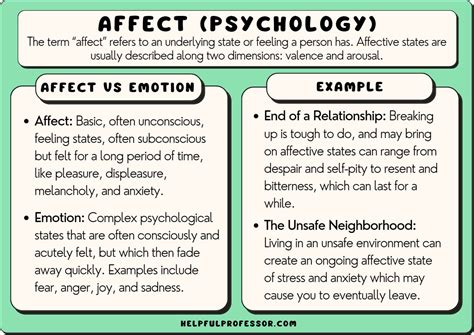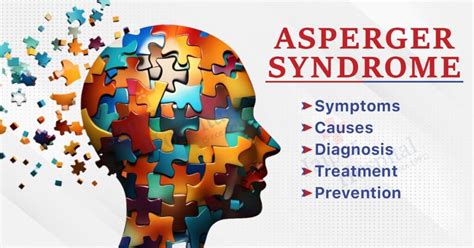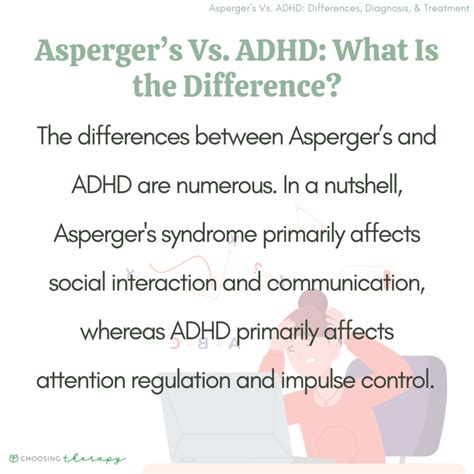5 Ways Asperger's Affects Friendships

Understanding the Impact of Asperger's on Friendships

Asperger’s syndrome, a form of autism spectrum disorder (ASD), affects individuals in various ways, including their ability to form and maintain friendships. While people with Asperger’s can be highly intelligent, creative, and empathetic, their social interactions can be influenced by difficulties with communication, social cues, and flexibility. In this article, we will explore five ways Asperger’s affects friendships and provide insights into building stronger, more meaningful relationships.
1. Difficulty with Social Initiation and Maintenance

Individuals with Asperger’s often struggle with initiating and maintaining conversations, which can make it challenging to establish and sustain friendships. They might have trouble:
- Starting conversations or knowing how to keep them going
- Understanding social cues, such as body language and tone of voice
- Interpreting sarcasm, humor, or figurative language
- Sharing personal experiences or feelings
To overcome these difficulties, people with Asperger’s can benefit from social skills training, practicing active listening, and asking open-ended questions to encourage deeper conversations.
2. Sensory and Emotional Overload

Social interactions can be overwhelming for individuals with Asperger’s, who may experience sensory overload from stimuli like loud noises, bright lights, or strong smells. Emotional overload can also occur when dealing with complex social situations, leading to feelings of anxiety, stress, or meltdowns.
To mitigate these issues, friends can:
- Be understanding and patient when their friend with Asperger’s needs time to process and recover
- Offer a calm and comfortable environment for social interactions
- Respect boundaries and avoid pushing their friend to participate in overwhelming activities
3. Difficulty with Empathy and Perspective-Taking

While individuals with Asperger’s can be highly empathetic, they might struggle with perspective-taking, which can lead to misunderstandings and conflicts in friendships. They might:
- Have trouble understanding their friend’s thoughts, feelings, or intentions
- Struggle to see things from another person’s point of view
- Appear insensitive or uncaring, even if they don’t intend to be
To build stronger relationships, friends can:
- Practice explicit communication, clearly expressing their thoughts and feelings
- Ask open-ended questions to encourage their friend with Asperger’s to share their perspective
- Avoid taking their friend’s actions or words personally, instead focusing on understanding their intentions
4. Rigid Thinking and Routine

Individuals with Asperger’s often prefer routine and can be resistant to changes in plans or unexpected events. This rigidity can affect friendships, particularly if friends are more spontaneous or flexible.
To accommodate these differences, friends can:
- Establish clear plans and expectations
- Offer advance notice when changes occur
- Respect their friend’s need for routine and structure
5. Honesty and Directness

People with Asperger’s tend to be honest and direct in their communication, which can sometimes be misinterpreted as insensitive or blunt. However, this trait can also be a strength in friendships, as it promotes transparency and trust.
To appreciate this aspect of Asperger’s, friends can:
- Value their friend’s honesty and directness
- Recognize that their friend is not trying to be hurtful or malicious
- Learn to communicate openly and honestly in return
🤝 Note: By understanding and embracing these differences, friends can build stronger, more meaningful relationships with individuals with Asperger's.
What are some common challenges faced by individuals with Asperger's in friendships?

+
Individuals with Asperger's may face challenges such as difficulty with social initiation and maintenance, sensory and emotional overload, difficulty with empathy and perspective-taking, rigid thinking and routine, and being too honest or direct.
How can friends support individuals with Asperger's in social situations?

+
Friends can support individuals with Asperger's by being understanding and patient, offering a calm and comfortable environment, respecting boundaries, and practicing explicit communication.
What are some benefits of having a friend with Asperger's?

+
Having a friend with Asperger's can bring benefits such as increased honesty and transparency, a unique perspective, and a deeper understanding of autism and neurodiversity.
In conclusion, Asperger’s can affect friendships in various ways, but by understanding and embracing these differences, friends can build stronger, more meaningful relationships. By being patient, respectful, and open-minded, friends can help individuals with Asperger’s navigate social challenges and create lasting bonds.



